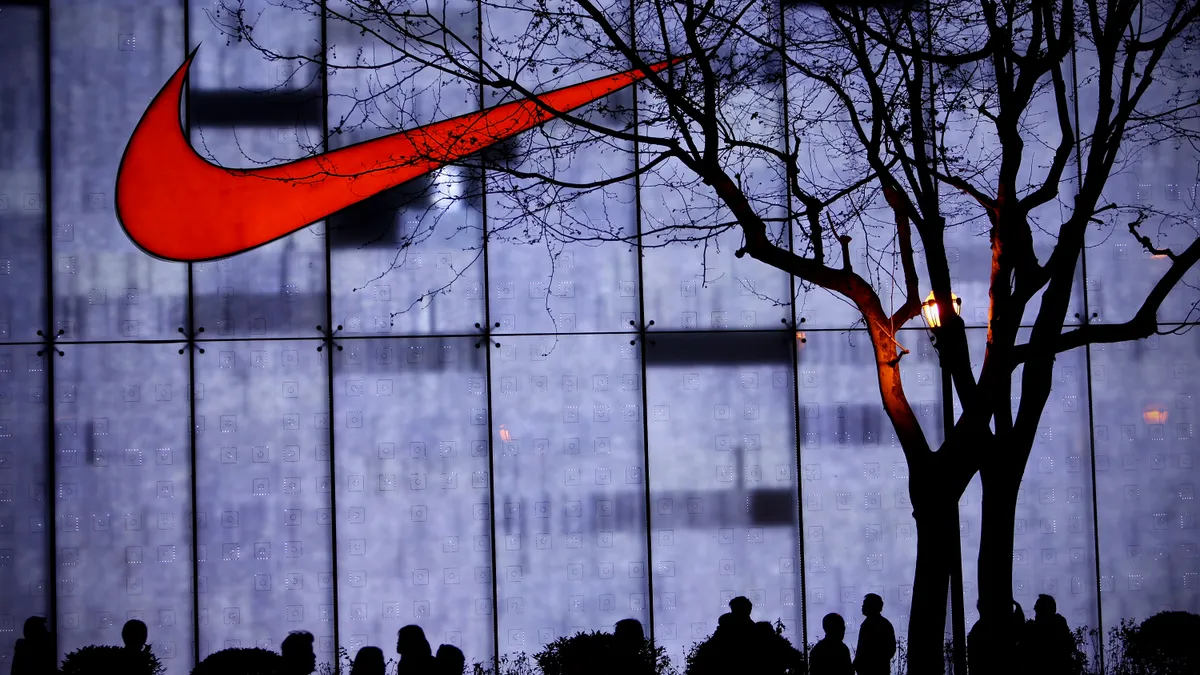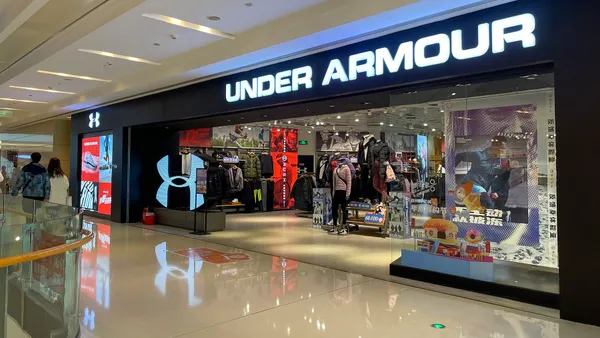Dive Brief:
- Nike is committing to “bolder and more distinctive” brand marketing as it seeks a rebound, CEO John Donahoe said on a call discussing third-quarter earnings with analysts last week.
- The Summer Olympics in Paris will serve as a showcase for the retooled strategy. CFO Matthew Friend said that an Olympics Air for Athletes campaign will be Nike’s most distinctive brand expression in several years, though the executive shared few details.
- Nike broadly is paring down its number of marketing initiatives, prioritizing ones with greater reach and impact, according to Friend. The company recently appointed a new marketing chief and is putting renewed focus on wholesale relationships.
Dive Insight:
Nike is trying to get some of its edge back as it contends with flat growth and challenges stemming from its DTC business. Among the company’s top priorities this year is more ambitious marketing, with the upcoming Olympics as an opportunity to draw in consumers and present the sportswear giant in a fresh light.
“Our brand storytelling will leverage our athletes and sport moments to become sharper and bolder, beginning with the Olympics this summer,” said CEO Donahoe on the call with analysts.
The mandate to develop fewer, bigger campaigns follows the appointment of Nicole Hubbard Graham as CMO at the start of the year. The executive replaces Dirk-Jan “DJ” van Hameren, who served as Nike’s marketing chief since 2018. Graham, who was hired as part of a larger executive shuffle, previously worked at the brand for nearly two decades, helping manage Nike’s global marketing teams and DTC operations.
Van Hameren stood at the marketing helm for some of Nike’s boldest brand-building plays in modern memory, including campaigns that wrestled with race and featured controversial ambassadors such as the NFL quarterback and activist Colin Kaepernick.
The climate around marketing that tackles social and political issues, sometimes referred to as purpose-led marketing, has soured of late, putting marketers in a difficult position. Backlash against brands that make missteps in this arena could be more intense in the midst of an intense election cycle where companies deemed “woke” have landed in the crosshairs. But brands also need to stay tapped into culture to appear relevant and win over consumer groups like Gen Z, who favor companies that express strong values.
Nike’s marketing refresh is just one piece of a four-pronged turnaround strategy. The company is also sharpening its positioning around sport, trying to drive more product innovation and increasing its investments in wholesale partners. While Nike’s DTC arm will continue to have a “critical role,” wholesale was positioned by Donahoe as an important way to scale new product innovations and connect Nike’s brands with consumers.
Sales stemming from Nike’s digital segment dropped 3% year-over-year in Q3 while Nike Direct revenues rose slightly to hit $5.4 billion. Wholesale saw 3% growth to $6.6 billion.












